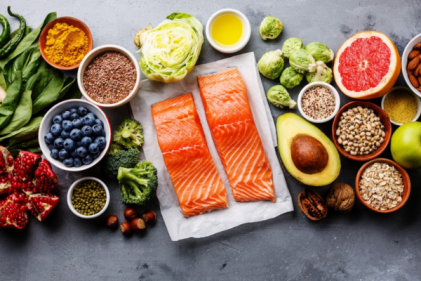Have you ever felt like you're wrestling with an invisible opponent when it comes to perimenopause and menopause symptoms? It can feel like an unwelcome rollercoaster ride, with unpredictable symptoms that leave many women searching for ways to regain control over their bodies. Luckily, you don't have to face this journey alone as we recently sat down with Emer McGlade of Dream Life Coaching to ask her advice. Emer is an expert in women's health and a dedicated personal trainer with over 23 years of experience.
As an ITEC-qualified Personal Trainer and Girls Gone Strong Certified Women's Coach, Emer has a keen interest in supporting women throughout their health journeys, from pre and postnatal fitness to the myriad changes brought on by menopause.
Here are Emer’s tips on how to change habits that may be sabotaging you and experience the significant impact that simple, small adjustments can make.
Create all-day energy
Hormonal changes, like fluctuations in oestrogen, progesterone, thyroid, and adrenals, can create chaos. It's common for women in their 40s and beyond to feel fatigued and low on energy. However, regular exercise can help increase energy levels, making you feel more alert and focused throughout the day. Incorporate at least 30 minutes of moderate-intensity exercise into your daily routine, such as brisk walking, jogging, cycling, or swimming. Yoga and pilates are excellent for relaxation and calming frazzled nerves. Weight training, however, is crucial for women at this stage of life. Resistance training builds muscle and provides the strength-building stimulus needed as oestrogen declines. A strong muscle frame is the fountain of youth and essential to maintain as we age!
Stay hydrated
During perimenopause and menopause, you may experience more frequent hot flashes and night sweats. Dehydration can worsen symptoms like dry skin, headaches, brain fog, and achy joints. Drink plenty of water throughout the day, aiming for at least eight glasses and more if you're exercising or in hot weather. Adding electrolyte solutions to your water can help balance salts and minerals lost through sweat. Limit or cut out caffeine and alcohol, as they can cause dehydration and worsen perimenopause and menopause symptoms, Instead, choose herbal teas, decaf coffee, and non-alcoholic beverages.
Crush cravings
Menopause can cause cravings for sugary, salty, or fatty foods. Increase protein intake to reduce cravings and feel fuller after meals. Build meals around protein sources like lean meat, fish, eggs, and dairy, aiming for 30-40g per meal. Focus on whole, nutrient-dense foods high in fibre and healthy fats, such as fruits, vegetables, nuts, and seeds. Avoid or reduce processed foods and sugar, which cause insulin spikes, blood sugar crashes, and further cravings.
Bone health
Menopause can lead to declining oestrogen levels, decreased bone density, and increased osteoporosis risk. Consume adequate calcium and vitamin D through diet or supplements to maintain strong and healthy bones. Dairy products and leafy greens are good calcium sources, while sunlight, fatty fish, and supplements provide vitamin D.
Boost your fat-burning potential
Losing weight around the midsection can be tough. Excessive cardio and under-eating may worsen stress and hormonal problems. Muscle mass decreases with age, but incorporating high-intensity interval training (HIIT) and strength training can improve metabolism, burn calories, and build lean muscle for better health and longevity.
Get better sleep
Menopause can affect sleep, leading to fatigue and mood swings. Improve sleep quality by sticking to a consistent sleep schedule, creating a cool, dark sleep space, avoiding screens an hour before bed, and using relaxation techniques like meditation or deep breathing.
Release negative self-talk
Negative self-talk, such as criticising your body, doubting your abilities, or feeling overwhelmed by the changes you're experiencing, can be damaging to your mental health and self-esteem. Focus on positive affirmations, such as reminding yourself of your strengths and accomplishments, practising self-compassion, and seeking support from friends, family, or a therapist.
Feel confident and thriving in mid-life
Despite the challenges that menopause can bring, it's essential to remember that it's a natural and normal part of life. By taking care of your physical and mental health, you can feel confident and thriving in mid-life and beyond. You are not victims of mid-life! You are the author of your own story. We need to stop with the ‘victim of ageing’ mentality. It's time to write your next chapter, my midlife friends. Make it fabulous!







